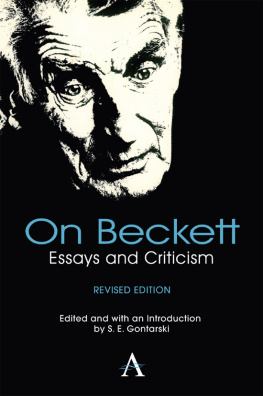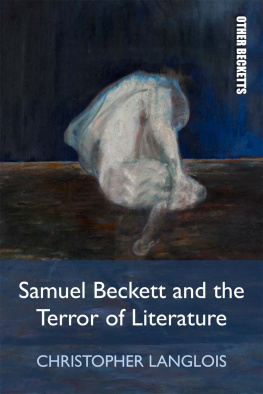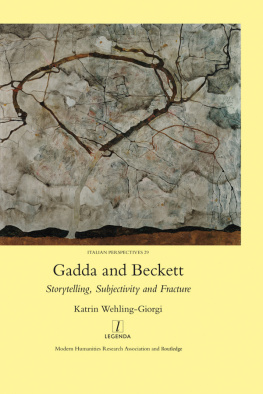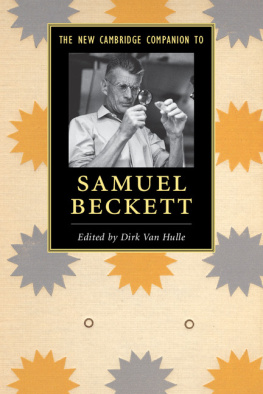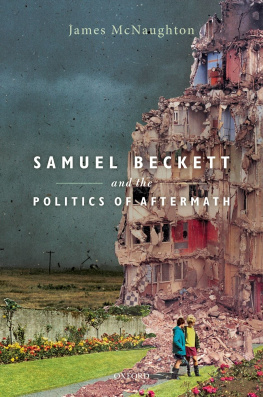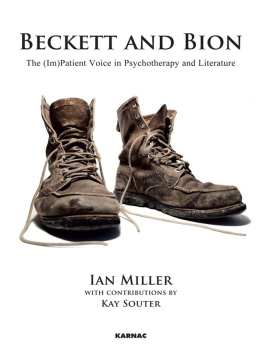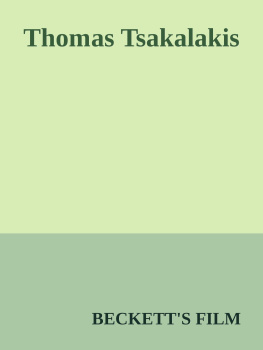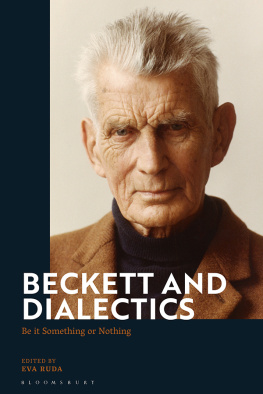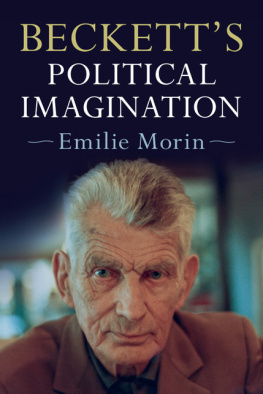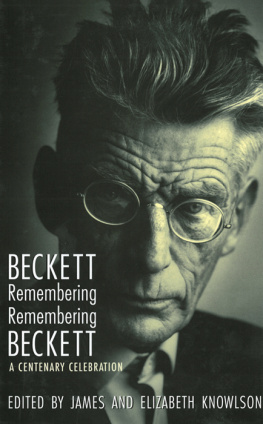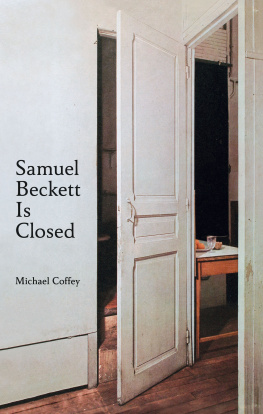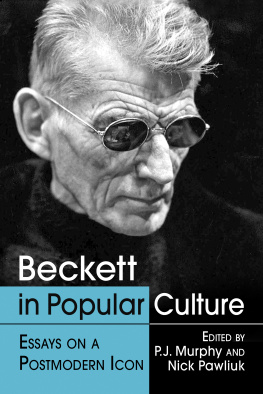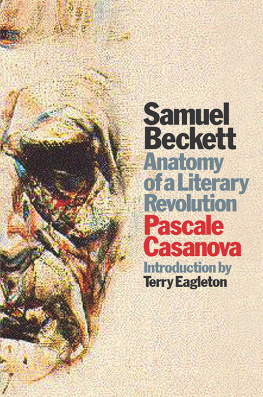T HINK , P IG !
Think, Pig!
B ECKETT AT THE L IMIT OF THE H UMAN
J EAN -M ICHEL R ABAT

Copyright 2016 Fordham University Press
All rights reserved. No part of this publication may be reproduced, stored in a retrieval system, or transmitted in any form or by any meanselectronic, mechanical, photocopy, recording, or any otherexcept for brief quotations in printed reviews, without the prior permission of the publisher.
Fordham University Press has no responsibility for the persistence or accuracy of URLs for external or third-party Internet websites referred to in this publication and does not guarantee that any content on such websites is, or will remain, accurate or appropriate.
Fordham University Press also publishes its books in a variety of electronic formats. Some content that appears in print may not be available in electronic books.
Visit us online at www.fordhampress.com.
Library of Congress Cataloging-in-Publication Data
Names: Rabat, Jean-Michel, 1949 author.
Title: Think, pig! : Beckett at the limit of the human / Jean-Michel Rabat.
Description: First edition. | New York : Fordham University Press, 2016. | Includes bibliographical references and index.
Identifiers: LCCN 2015042060 (print) | LCCN 2016000364 (ebook) | ISBN 9780823270859 (hardback) | ISBN 9780823270866 (paper) | ISBN 9780823270873 (ePub)
Subjects: LCSH: Beckett, Samuel, 19061989Criticism and interpretation. | LiteraturePhilosophy. | TheaterPhilosophy. | BISAC: LITERARY CRITICISM / General. | PHILOSOPHY / Aesthetics. | PERFORMING ARTS / Theater / History & Criticism.
Classification: LCC PR6003.E282 Z7886 2016 (print) | LCC PR6003.E282 (ebook) | DDC 848/.91409dc23 LC record available at http://lccn.loc.gov/2015042060
18 17 16 5 4 3 2 1
First edition
CONTENTS
T HINK , P IG !
Although Samuel Beckett was the only writer I was eager to meet when I was a student in Paris, I never dared approach him, so great was the awe he inspired. In the late sixties, the cole Normale Suprieure had not yet memorialized his passage in the institution. No hall had been named after him yet. The students were not even sure in which room he had spent two crucial years on the premises. When I edited a collection of essays about his early work with the cole Normale Suprieure press, the board felt that it was its duty to pay Beckett an homage that had been long overdue. I mailed a copy of the book to Beckett, who immediately wrote back to thank me. He inserted in his kind note, as a little joke, an a to the title that, out of modesty, he had abbreviated: Beckett avant Beckett had become BABa. This book could only be a B. A., BA, as the French say, meaning a basic primer. Ironically self-deflating and deflating us, Beckett showed to our group of contributors that we should not take ourselves too seriously when discussing his work. He was also warning us about the danger of explaining, that is, of reducing his work to formulas.
Despite the promptings of an Irish friend who saw Beckett regularly for late-night chats accompanied by a lot of whiskey, I never found the courage to arrange a meeting. Not only was Beckett a world-renowned writer, but he was also a man who had to be faced fully. I did not feel strong enough to meet him. I had heard of the long and painful silences that marked first meetings with well-meaning admirers. Even though I had spent more time writing a dissertation on James Joyce, I never imagined that I would have enjoyed meeting Joyce in person, had this been possible. The reverse was true with Beckett, yet the more I longed to meet him, the less this seemed conceivable.
This ineluctable distance has been reduced by the many books recently published about the most diverse aspects of his work; yet, at the time of writing, I kept wondering how to address Beckett in print only, as he was both a towering presence and a humble person. If Beckett has remained our contemporary even though he is, admittedly, the last modernist, his work points to the future. A relentless experimenter, Beckett reinvented himself several times by some sort of creative bricolage, burying a character into a mound of earth in Happy Days, making a blabbering mouth the main character of Not I, thus expanding the definition of a theatrical stage, and discovering new media such as the radio, film, video, and television. Not bothered if he disappointed audiences with his disconcertingly original approaches, he progressed by questioning his ability to go on further. And his solutions pushed the limits of each medium, each perfect in spite of mounting impossibilities. What is more is that each time, these solutions would overcome the dread of silence, sterility, and impotence.
Beyond the exemplary nature of his artistic career, anyone who has read a biography of Beckett can verify that he was that oddity: a driven artist who happened to be a good man. This is why he has been a hero to diverse philosophers, including Simon Critchley, Theodor W. Adorno, and Dilkss contrarian approach has the merit of resisting the temptation of an all too pious hagiography, and besides, it is true that Beckett cared for his reputation, that he managed his career skillfully and checked on the sums of money he received for his work. On the other hand, his immense generosity has been attested by all. Moreover, he objected to the label of hero, and refused, for instance, to play any official role in commemorations of the French Resistance. He was both a humble man and a domineering author who would never relinquish control over his texts. Harold Pinter appreciated this duality when he evoked Beckett in 1954:
I dont want philosophies, tracts, dogmas, creeds, ways outs, truths, answers, nothing from the bargain basement. He is the most courageous, remorseless writer going and the more he grinds my nose in the shit the more I am grateful to him. Hes not fucking me about, hes not leading me up any garden,... hes not selling me anything I dont want to buy, he doesnt give a bollock whether I buy or not, he hasnt got his hand over his heart. Well, Ill buy his goods, hook, line and sinker, because he leaves no stone unturned and no maggot lonely. He brings forth a body of beauty.
Pinters earthy and pithy encomium captures what philosophers have admired in Beckett: the paradox of someone who provides all the more a model of ethical behavior as he refuses to be a model. He will never tell you what to do or what to think. Becketts exemplarity lies in that he even avoids being taken as an example. This attitude allows him to rephrase contemporary ethics by posing simple albeit basic questions. Beckett keeps asking: Whats the point of art as form and of art for life? With an urgency admired by thinkers as diverse as Adorno, Badiou, Critchley, but also Stanley Cavell, Jacques Derrida, or Gilles Deleuze, Becketts strenuous efforts as a writer help us reject pseudo-values and reach a sitea linguistic and ethical positionin which one can truly think, love, live, or write. What he offers is tantamount to a radical imperative to continue living, because, for him, such an affirmative gesture implicitly underpins all our actions. While Beckett avoids telling us what to do or believe in, his extraordinary verbal energy dislodges us from any complacency about style, form, and values.
In 1945, when introducing MacGreevys essay on Jack Yeats, Beckett harnessed the apparent paradox that philosophy can be used against philosophy: There is at least this to be said for mind, that it can dispel mind. And at least this for art-criticism, that it can lift from the eyes, before
Next page

